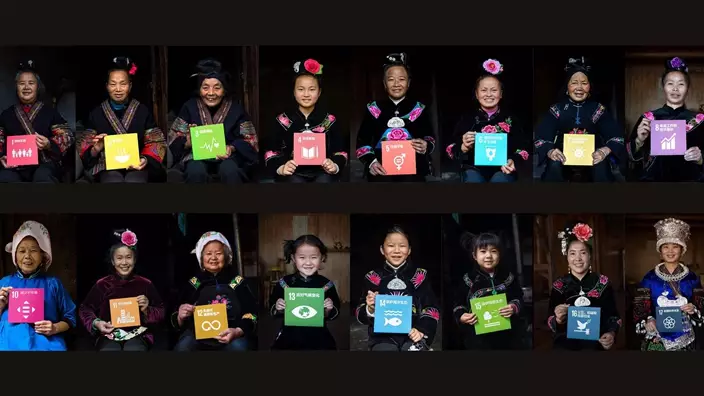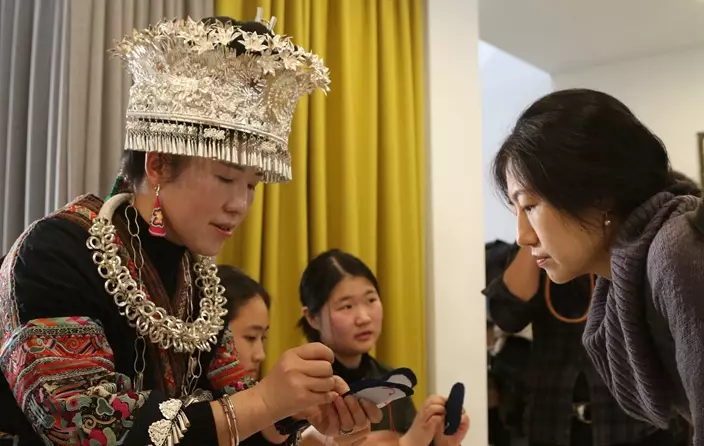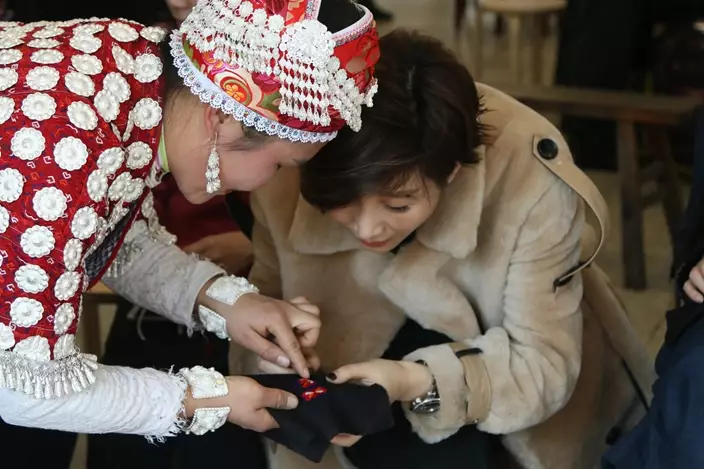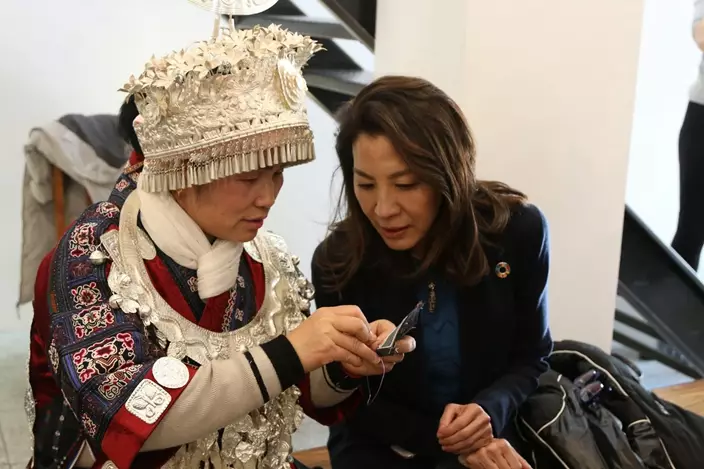The United Nations Development Program’s (UNDP) Goodwill Ambassador Michelle Yeoh is fulfilling her mission by taking lessons – embroidery lessons.

Handout Photo from UNDP
Yeoh's three teachers – Gu Lanhua, Long Dafen and Li Min – are from the Miao ethnic group and live in Qiandongnan Miao and Dong Autonomous Prefecture of Guizhou Province, where 4.93 million people reported living under the poverty line in 2015.
Due to poverty and geographical isolation, it is common for Qiandongnan’s young labor force – especially the males – to work in other more developed areas.

Miao woman teaches embroidery at a workshop. /Handout Photo from UNDP
Like many Miao women, Gu, Long and Li stayed behind at home to take care of their kids and tend to their livestock. They tried working in big cities for higher wages, but came back home for a sense of belonging – even though living in remote villages offers no source of income.
Due to a lack of income generation skills, they could not engage fully in society and were excluded from community decision-making. None of them could have imagined the very needle and thread they use to make traditional Miao clothing could be their way out.
To increase the development of cultural industry in ethnic minority areas, empower women and foster women’s development, the UNDP launched a project called “Weaving into Happiness."

A Miao woman teaching embroidery at a workshop. /Handout Photo from UNDP
The Miao people do not have written words. Instead, embroidery is an important medium for the preservation of their stories and culture. The patterns they weave and techniques they employ carry the ancient wisdom of their culture. Yet with the encroachment of modern civilization, fewer women now are willing to learn the trade from elders in the village.
Recognizing the unparalleled artistic and cultural value of Miao embroidery, UNDP collaborated with the Guizhou provincial government to help local women earn more money by selling the Miao’s elaborately adorned fabrics.
“I learned embroidery from my mother-in-law,” Long Dafen said, “I started learning embroidery when I knew I could sell it and make more money. When my earnings started to make a serious contribution to our household income, my husband started to help me out in housework, taking care of kids and included me in family decision-making.”
Long is weaving her way of out of poverty. Her success encouraged many other Miao women in her village to study Miao embroidery. It also drew the attention of actress Michelle Yeoh to promote their visibility and to raise awareness of the UN Sustainable Development Goals.

A Miao woman teaches Michelle Yeoh embroidery at a workshop. /Handout Photo from UNDP
The Weaving into Happiness project will assist China in lifting 70 million people out of poverty by 2020. In addition, it will significantly contribute to raising public awareness of gender inequality, improving the livelihood of ethnic minority groups – especially women – and creating jobs through the culture-based industry while preserving their cultural heritage.


